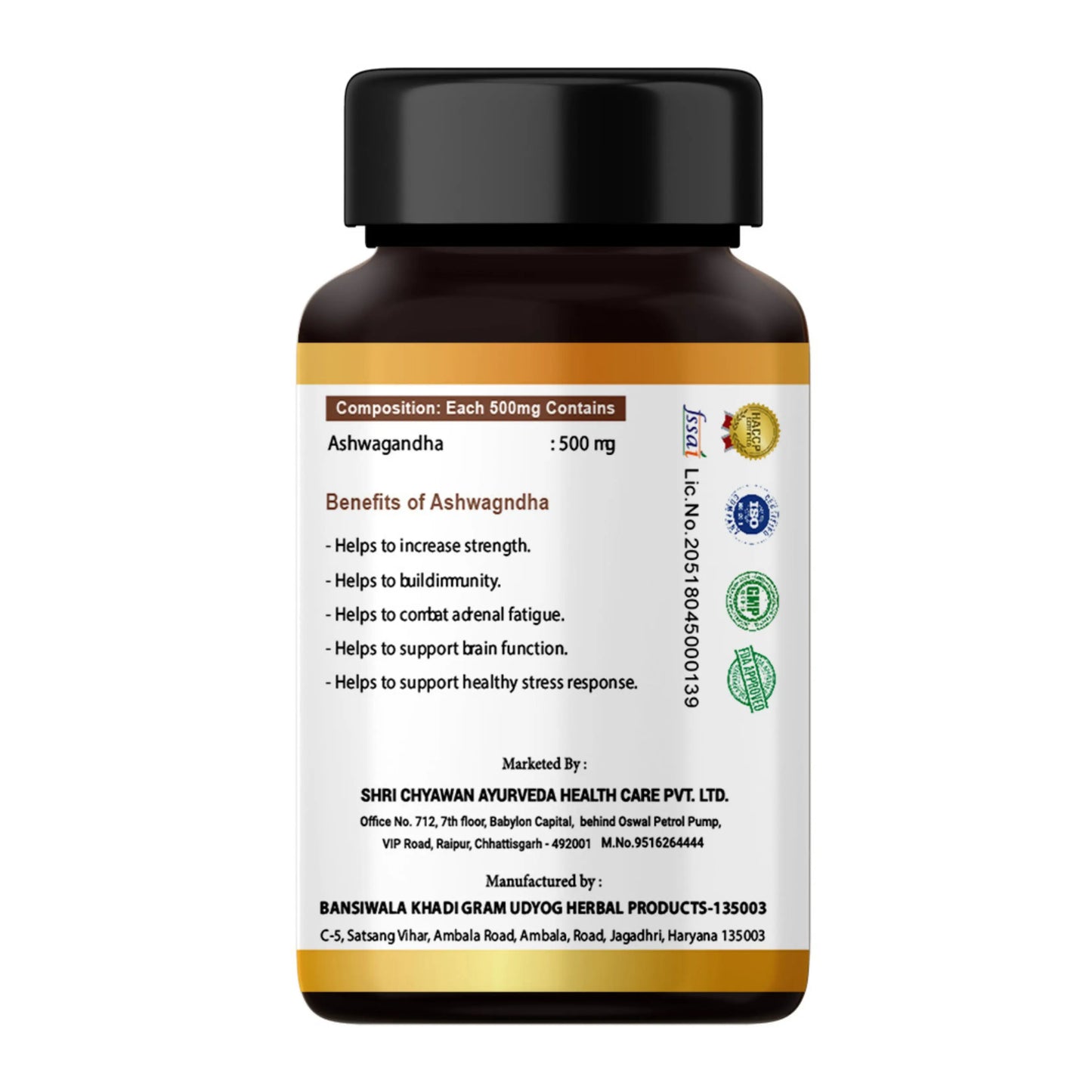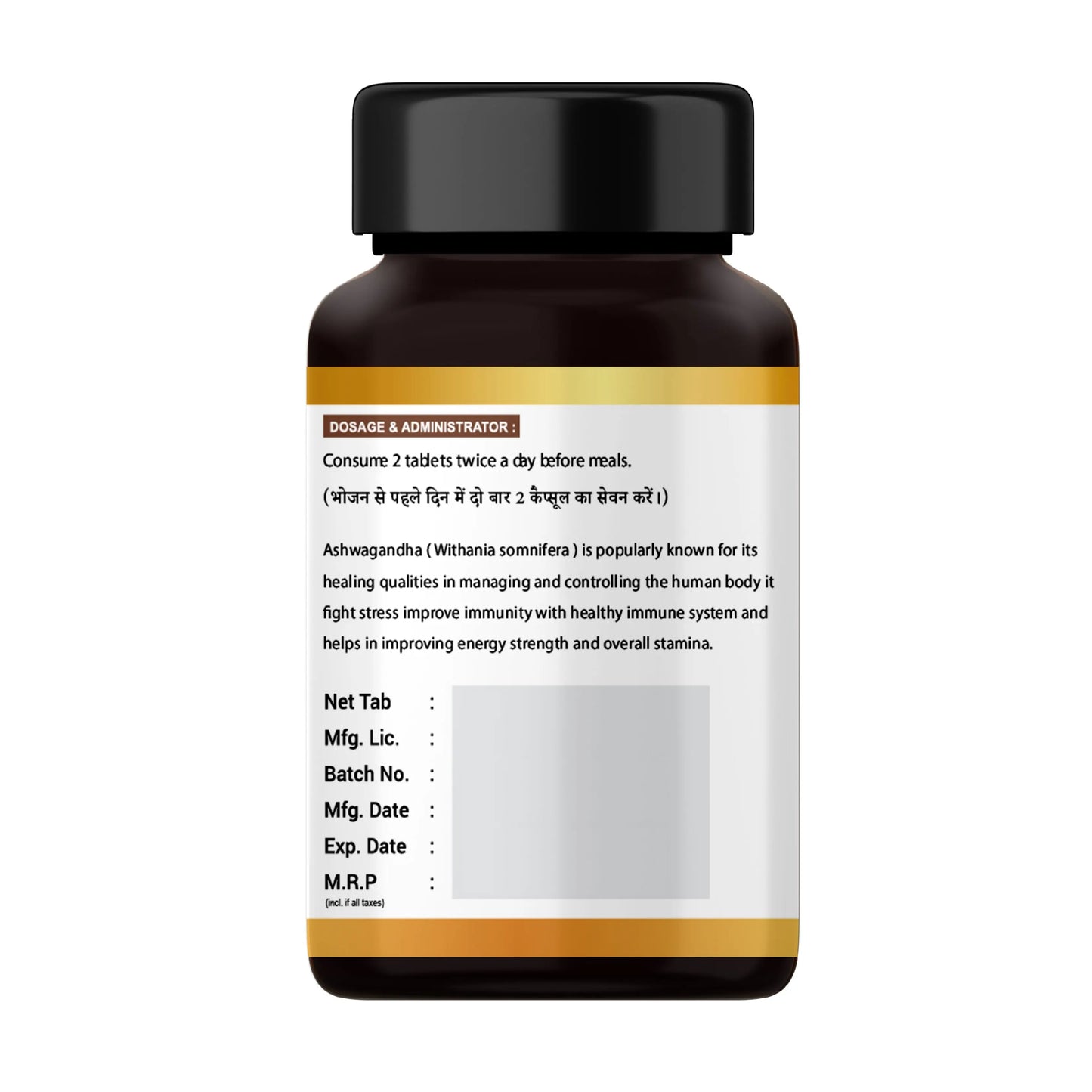In the realm of ancient holistic medicine, Ayurveda stands as a beacon of traditional wisdom. Among its treasure trove of medicinal herbs, Ashwagandha (Withania somnifera) shines as a revered powerhouse, celebrated for its multifaceted healing properties. Let's delve into the rich tapestry of Ashwagandha's benefits as understood in Ayurveda, exploring its potential impact on various facets of health.
Stress and Anxiety: Unravelling Adaptogenic Wonders
Ashwagandha is hailed as an adaptogen, a botanical marvel that assists the body in adapting to stressors. In Ayurveda, it's revered for its ability to restore equilibrium in the body, potentially alleviating stress and anxiety by balancing stress hormones like cortisol. Its adaptogenic nature assists in fostering resilience to daily stressors, aiding some individuals in finding a more centered state of being.
Depression: A Glimpse into Potential Antidepressant Effects
Emerging studies suggest that Ashwagandha might possess antidepressant effects. By influencing neurotransmitters such as serotonin, dopamine, and GABA, key players in regulating mood, this herb could offer relief from symptoms of depression. However, more research is warranted to ascertain its efficacy as a standalone treatment for depressive disorders.
Inflammation: Harnessing Anti-Inflammatory Potency
In the realm of Ayurvedic medicine, Ashwagandha is revered for its anti-inflammatory prowess. Chronic inflammation is implicated in various health issues, and this herb is believed to hold promise in managing inflammatory conditions. Its compounds are thought to mitigate inflammation, potentially offering relief to those grappling with related health challenges.
Immune System Support: Fortifying the Body's Defences
Ayurveda ascribes immune-boosting properties to Ashwagandha. Studies hint at its ability to stimulate immune cell activity, potentially strengthening the body's defence mechanisms. This herb might play a role in bolstering immunity, aiding in fending off infections and promoting overall well-being.
Lowering Blood Sugar Levels: A Boon for Diabetes Management
Research has unveiled promising evidence regarding Ashwagandha's impact on blood sugar levels. Compounds within this herb, notably with anolides, exhibit hypoglycemic effects. By enhancing insulin sensitivity and aiding in glucose metabolism, Ashwagandha Tablet could potentially offer benefits to individuals managing diabetes.
Shri Chyawan Ayurveda’s Ashwagandha Tablets
It is the most important and miraculous ayurvedic medicine offering number of health benefits in male and female. It contains certain ingredients that help calm the brain, reduce swelling, lower blood pressure, etc. It is also called as Winter Cherry.
Ashwagandha Tablet Benefits:
-
Reduces Stress and Anxiety: Ashwagandha is best and popularly known for its ability to reduce stress and anxiety. It’s also classified as an adaptogen, a substance that helps the body to cope with stress.
-
Improves Sleep Quality: Ashwagandha effectively helps to improve sleep quality and regulates your sleep cycle. It helps to combat fatigue and boosts energy.
-
Improves Testosterone Levels: Ashwagandha helps to improve testosterone levels, which improves overall physical performance and boosts vitality and stamina.
-
Boosts Immunity: Ashwagandha is known to increase the White Blood Cells, which thereby helps to boost your overall immunity to fight various illnesses.
-
Blood Sugar and Inflammation: Ashwagandha helps to maintain ideal blood sugar levels, reduces inflammation, and improves skin health.
- Natural & Pure: Ashwagandha capsules are made from Ashwagandha root extracts and they are pure and natural.
How to use: Consume 2 capsules twice a day before meals.
Ashwagandha stands tall in the landscape of Ayurvedic medicine, a versatile herb lauded for its multifaceted healing potential. However, while its therapeutic benefits hold promise, caution should be exercised. Consultation with a healthcare professional is crucial before integrating Ashwagandha into one's wellness regimen, especially for those with existing health conditions or who are taking medications.








